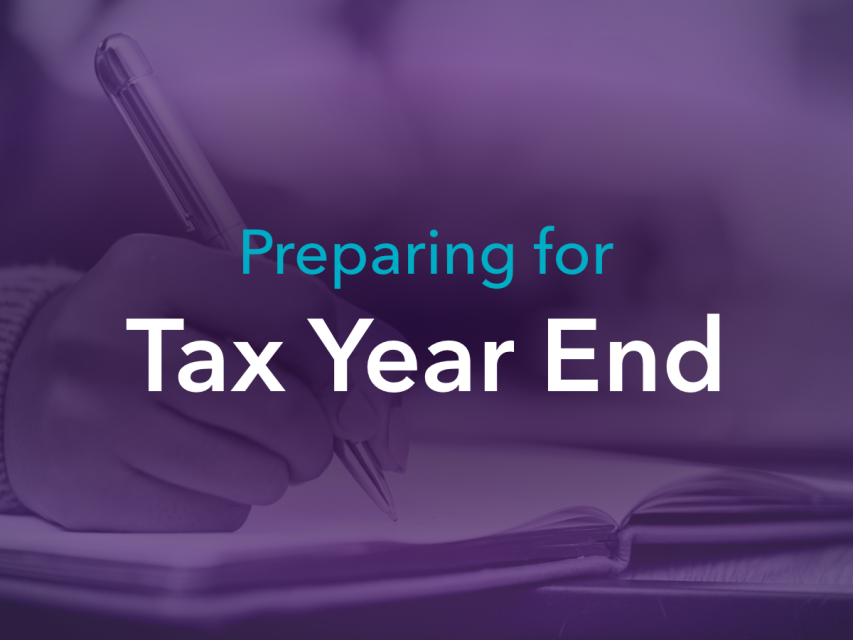5 of the biggest pre-retirement misconceptions
Do you have a picture in your head of what retirement is going to look like?
The major milestone of retirement can often be misunderstood. Hopefully, this monthly roundup will help dispel some common misconceptions, help you refine your retirement planning, and assist you in setting yourself up for a secure future.
I’m too old to start saving into a pension
You can still have some financial security at retirement even if you start saving with a pension later in life.
When you pay into a Workplace Pension you’ll also usually get contributions from your employer and extra money from government tax relief if you’re eligible.
The government has set minimum levels of contributions that you and/or your employer must make into a Workplace Pension. The current minimum total contribution for Workplace Pensions is 8% for eligible workers who are automatically enrolled into their workplace scheme, of which 3% must come from your employer. This 8% total is made up of money from your salary and money contributed by your employer. Some employers will match employee contributions up to a certain maximum, so it is worth checking with your employer to see what your scheme offers you.
You can also set up your own Personal Pension, allowing you to save over a number of years and give you money to live on when you’re older. These contributions can also attract tax relief if you are eligible.
One option you could also consider if you do open a pension later, would be to add money you have left over at the end of the month (your disposable income) into your pension.
Even if you have no pension at 50, it’s still not too late to start one. Going by the forecasted State Pension age of 67 which is due to take effect between 2026 and 2028, this still leaves 17 years (or more, depending on your circumstances) left to invest ahead of potential retirement – and a lot can be done in that time.
If you have a Personal Pension, your pension provider claims tax relief for you from HMRC to automatically add the basic rate of 20% to your pot. If you’re an additional- or higher-rate tax payer you’ll need to claim back the additional tax relief by contacting HMRC.
You can’t pass on a pension as part of your legacy
Thinking about what happens once you pass isn’t easy, but it’s important to understand what happens to your pension – including if the money is taxed.
Your pension can be left to your beneficiary through your Expression of Wish.
An Expression of Wish is a statement to your pension provider that lays out who you want to receive your pension savings if you die before you have taken all your money.
Currently, your pension sits outside of your estate, meaning your beneficiary won’t pay any Inheritance Tax on the money inherited through your pension. However, from 2027, under proposed changes announced in the 2024 Autumn Budget, unused pension savings could be taxed as part of your estate if it exceeds the IHT threshold. We are still awaiting the finalised legislation, so things could change.
Whether the beneficiary pays tax usually depends on the type of payment, the type of pension pot, and the age of the pension pot’s owner when they died.
Taxes may apply if the pension scheme member was over 75 when they died or if the payment exceeds the £1,073,100 lump sum and death benefit allowance (LSDBA), which replaced the lifetime allowance (LTA). These rules remain unchanged.
If you are unsure about anything, speak with your financial adviser. Your financial legacy is important and you’ll want to make sure that it is protected appropriately.
The State Pension will be enough to cover my expenses in retirement
The State Pension is a regular payment from the government most people can claim after reaching a certain age and the amount you receive varies depending on when you were born.
You can claim the new State Pension if you’re a man born on or after 6th April 1951 or a woman born on or after 6th April 1953. The full rate of the new State Pension as of the 2025/26 tax year is £230.25 a week, an increase on the £221.20 a week paid in the 2024/25 tax year.
You’ll get the basic State Pension if you’re a man born before 6th April 1951 or a woman born before 6th April 1953. The full rate of the basic State Pension as of the 2025/26 tax year is £176.45 a week, an increase on the £169.50 a week paid in the 2024/25 tax year.
This could be enough for those who own their home outright to cover the very basics for everyday living, however this may be limiting for those who want to enjoy a more comfortable retirement without money worries.
Life expectancy in England and Wales has generally been increasing over the last 40 years, aided by advances in health care and improvements in living and working conditions.
In the UK, life expectancy at birth is currently around 78.8 years for males and 82.8 years for females. However latest data suggests boys born in the UK in 2023 can expect to live on average to the age of 86.7, and girls to 90.
The Office for National Statistics says the latest figures show a continued trend of longer life expectancy for men and women.
This in turn brings an increase in the amount of time that our pensions will need to last to fund our lives in retirement, including if we need long-term care when we’re older.
It’s also good to be aware of potential changes – while the State Pension age in the UK is currently 66, it’s expected to increase to 67 between 2026 and 2028. As the UK population gets older as a whole – in the last 40 years, the number of people aged 50 and over has increased by over 6.8 million – there are no guarantees that the pension age won’t increase further.
I can access my pension pot whenever I wish
There are restrictions on accessing your private pensions and most defined contribution Workplace Pensions. Typically, you’ll need to wait until you’re at least 55 to access your pension – however, this is set to change to 57 on 6th April 2028.
It’s important to think carefully about how you manage your money, especially to avoid it running too low as you get older.
It’s not possible to receive your State Pension before your State Pension age. There isn’t one State Pension age for everybody; the answer depends on your circumstances. Right now, the State Pension age is 66 for most people approaching retirement in the near future – this is the earliest you can receive your State Pension if you have paid in enough years of national insurance contributions. This age may change for others in the future by the time retirement nears.
To find out your exact State Pension age, go to the government gateway website.
The State Pension is not paid automatically. You need to claim it either online, by phone, or by post. You’ll receive a letter from the government about four months before you reach State Pension age, informing you of your options.
I should take my 25% tax free cash from my pension as soon as possible
Taking money from your pension should be considered carefully. When eligible, you can take money from your pension pot as and when you need it until it runs out, while you maintain control of how much you take and when you take it. It is always a good idea to speak to your financial adviser before taking money from your pension.
Most people will get 25% of their total pension pot tax-free. The most you can take currently is £268,275, while the tax-free lump sum does not affect your personal allowance. Some people may have a higher lump sum allowance (known as enhanced or fixed protection). If you’re unsure speak to your financial adviser.
There are also rules that allow you to cash in a small pension pot of £10,000 or less, if you’ve reached age 55 and the payment covers all your rights in the scheme.
Approximately 25% of the withdrawal will be tax-free and the other 75% of the withdrawal will be taxed at your marginal income tax rate.
It’s worth noting that your pension savings need to last you throughout your retirement – which could be longer than you might think.
Therefore, leaving your pension savings invested as long as you can gives them potentially more opportunity to grow.
The ‘Money Purchase Annual Allowance’
This applies where an individual has flexibly accessed any of their taxable pension benefits and was introduced on 6th April 2015.
The Money Purchase Annual Allowance (MPAA) reduces the amount you can save into a defined contribution pension and get tax relief from a maximum of £60,000 to £10,000 in the 2025/26 tax year. The MPAA is usually not triggered if you take up to 25% of your pension as a tax-free cash lump sum14 and leave the rest invested, meaning you can retain the full £60,000 annual allowance. Note: this maximum £60,000 allowance could be lower depending on your earnings. If you’re unsure please check with your financial adviser.
However, it may be triggered if take your entire pension in one go – unless it’s worth under £10,000 and you ask your pension provider to use small pot lump sum rules.
If you’re aged 50 or over you can get free and impartial guidance when it comes to your pension plan from Pension Wise, a service from MoneyHelper. You can also consult a financial adviser to talk about the correct approach for you and your circumstances.
With investing, your capital is at risk. Investments can fluctuate in value and you may get back less than you invest. This material is not a personal recommendation or financial advice and the investments referred to may not be suitable for all investors.
Tax is subject to an individual’s personal circumstances and tax rules can change at any time.
Pension eligibility and tax rules apply. You should ensure your contribution does not result in your total Pension contribution within the tax year exceeding £60,000 or 100% of your earnings, whichever is lower. Past performance is not a guide to future performance.
True Potential Wealth Management is authorised and regulated by the Financial Conduct Authority. FRN 529810. Registered in England and Wales as a Limited Liability Partnership No. OC356611.
True Potential Investments LLP is authorised and regulated by the Financial Conduct Authority. FRN 527444. Registered in England and Wales as a Limited Liability Partnership No. OC356027.
True Potential LLP is registered in England and Wales as a Limited Liability Partnership No. OC380771.





